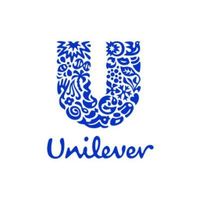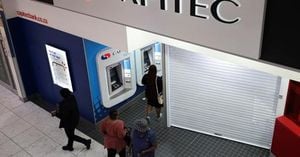Unilever has made headlines with the surprising dismissal of its CEO, Hein Schumacher, after a brief tenure of just 20 months. The company's chairman, Ian Meakin, announced that Schumacher's replacement would be Fernando Fernandez, the current CFO, who is expected to bring a sense of urgency to the company’s growth aspirations. While Meakin acknowledged that Unilever's performance in 2024 was satisfactory, he emphasized that achieving industry-leading results remains a significant challenge.
This leadership change at Unilever reflects a broader trend observed on Wall Street, where there is increasing pressure on corporate boards to act swiftly in response to shareholder demands for rapid results. According to exechange.com, 2024 has seen more CEO dismissals and forced resignations than any year since 2017, with the average tenure for departing CEOs in S&P 500 companies plummeting to 8.3 years, the shortest since 2017.
Several high-profile CEO departures have marked this year, including Bernard Kim from Match Group Inc., David Kimbell from Ulta Beauty Inc., and Patrick Gelsinger from Intel Corp. This wave of changes is partly attributed to boards becoming more actively involved in company affairs, a shift that has been accelerated by the Sarbanes-Oxley Act of 2002 and the COVID-19 pandemic. Notably, S&P 500 firms are experiencing a higher rate of forced CEO departures compared to their S&P 600 counterparts.
In an era characterized by volatility and uncertainty, the decision to replace Schumacher signals a significant shift in corporate governance, as boards seek to ensure that their leaders can deliver results quickly. Meakin's confidence in Fernandez's ability to drive change is evident; he stated that the board was impressed with Fernandez's "decisive and results-oriented approach" and his capacity to execute at speed.
Moreover, the board's decision to part ways with Schumacher suggests that they felt he was not delivering change fast enough, a sentiment echoed across many industries where companies are under pressure to adapt rapidly to shifting market dynamics.
In a recent fireside chat with Warren Ackerman, Head of European Consumer Staples Research at Barclays, Fernandez outlined his vision for Unilever moving forward. He expressed a commitment to focusing on demand creation and in-market execution, emphasizing that every brand and category within Unilever's portfolio must "earn the right to be there." He also highlighted that Unilever was ranked number one in total shareholder return in 2024, indicating that the company’s Growth Action Plan is yielding positive results.
Looking ahead, Fernandez aims to have around 50% of Unilever's business in the premium segment, which he believes is essential for driving volume growth and margin expansion. He stated, "Building a portfolio that’s more premium requires creating desirability at scale." This strategic shift is part of a broader organizational change at Unilever, which includes divisionalizing the sales force in the top 24 markets to enhance accountability and delivery.
Fernandez also mentioned that Unilever is making progress in the separation of its Ice Cream business, with a demerger planned by the end of 2025. He reassured stakeholders that this transition would not distract the management team from their core objectives.
In addition to the structural changes, Fernandez pointed out that Unilever is poised for stronger contributions from emerging markets such as India, China, and Indonesia. In India, the company is aligning its portfolio with shifts in consumer preferences, while in China, it is adopting a more selective strategy and a direct route to market. Meanwhile, Indonesia has shown promising growth, exceeding forecasts in recent months.
As Unilever navigates this transition, it remains crucial for the company to execute its strategies effectively. Fernandez is keen on ensuring that the geographical coverage of key innovations in Unilever's top 24 markets happens more swiftly than before, which he believes will drive the company to the level of growth that investors demand and deserve.
Despite the urgency surrounding leadership changes, experts caution that replacing CEOs is not always a panacea for a company's challenges. For instance, Boeing continues to grapple with significant issues despite a change in leadership, while Starbucks has seen declining sales under new management. Patience can often be a critical factor in achieving successful turnarounds, as demonstrated by Brian Niccol's transformation of Chipotle Mexican Grill Inc., which took time to manifest results.
The current climate of corporate leadership is undoubtedly influenced by the fear of missing out on opportunities due to inadequate leadership. As boards become increasingly proactive in their oversight, the expectation for swift results will likely continue to rise. This urgency-driven approach not only sets a new standard for performance in major corporations but also highlights the need for leaders to adapt quickly in an ever-evolving business landscape.
In summary, Unilever's recent leadership change exemplifies the growing trend of urgency in corporate governance, where boards are compelled to act decisively to meet the expectations of shareholders. With Fernandez at the helm, Unilever aims to accelerate its growth strategy and capitalize on emerging market opportunities while navigating the complexities of a rapidly changing global economy.






